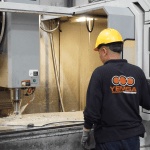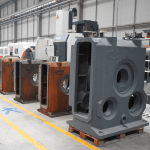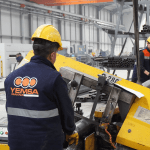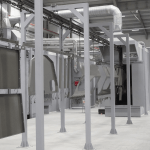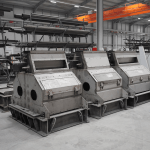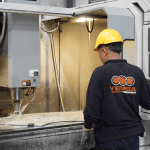What is Oil Scale and How to Use It?
Oil scales are one of the important equipment that ensure accurate and precise measurement of liquid products in agriculture and animal husbandry sectors. In production processes, the use of oil and similar liquids by dosing at specified rates increases product quality and maximises productivity. In this article, you can find detailed information about the working principle, usage areas and advantages of oil scales.
What is Oil Scale?
Weighing systems used in agriculture and livestock sectors increase quality control and productivity by ensuring accurate measurement of products. Oil scale is a special weighing system used especially for dosing liquid oils in certain proportions. It increases the precision of production processes by ensuring that the right amount of liquid is added to the process.
What Does a Fat Scale Do?
Oil scales allow liquid products to be added in controlled quantities. The working principle is based on a system consisting of two chambers. Between these chambers, there is equipment that measures the flow of liquid and the flow is stopped when the specified amount is completed. This system is especially used in oil coating processes in feed production.
Oil Scale Usage Areas
Oil scale is used in many different sectors. Here are the most used sectors
Agriculture and livestock sector: Feed production, liquid dosing processes
Food industry: Oil coating systems
Chemical and pharmaceutical industry: Liquid dosing processes
Automation systems: Mixing of liquids in certain proportions in industrial production lines
Oil Scale Working Principle
Oil scales consist of various components for precise measurement. The system works in the following steps
Measurement of Liquid: A certain amount of liquid is taken from the upper chamber and transferred to the lower chamber.
Dosage Control: The flow between the chambers is controlled by volumetric liquid flow measurement equipment.
Uninterrupted Flow: After the desired amount of liquid has passed, the flow is stopped and the process is completed.
Participation at the Right Ratios: The measured liquid is added to the production line at the specified rate.
Oil Scale Features
Durable Body: It can be manufactured from stainless steel or black sheet metal.
Vibration Cancelling: Mounted on 3 loadcells with rubber wedges, it is not affected by vibrations during filling.
Modular Structure: Body heights can be optimised and outlet diameters can be changed according to the desired flow rate.
Energy Efficiency: It provides high precision with low energy consumption.
Advantages of Oil Scale
- Oil scales offer high efficiency in production by ensuring that liquids are added to processes in a controlled manner. It minimises material losses by making precise measurements.
- It ensures homogenous distribution of the liquid during oil coating processes in feed production. In this way, the durability of feeds increases and product quality increases.
- Thanks to its low energy consumption, it reduces operating costs and offers an environmentally friendly production process.
- It has a long service life as it is produced from stainless steel or durable sheet materials. It reduces the costs of businesses with low maintenance needs.
- Easy installation thanks to its modular and compact design. Thanks to its user-friendly interface, it can be easily used by operators.
Yemsa Machine Oil Scale Material Options
- It can be produced from AISI-304 or AISI-316 stainless steel according to demand.
- Customisable Structure: Body height and outlet diameters can be adjusted according to different flow rates.
Oil scales play a critical role especially in feed production. These systems, which increase product quality by precise weighing, increase productivity while reducing costs of businesses. If you are looking for a suitable oil scale for your business, Yemsa Makina You can choose the most suitable model for your needs from the website.


